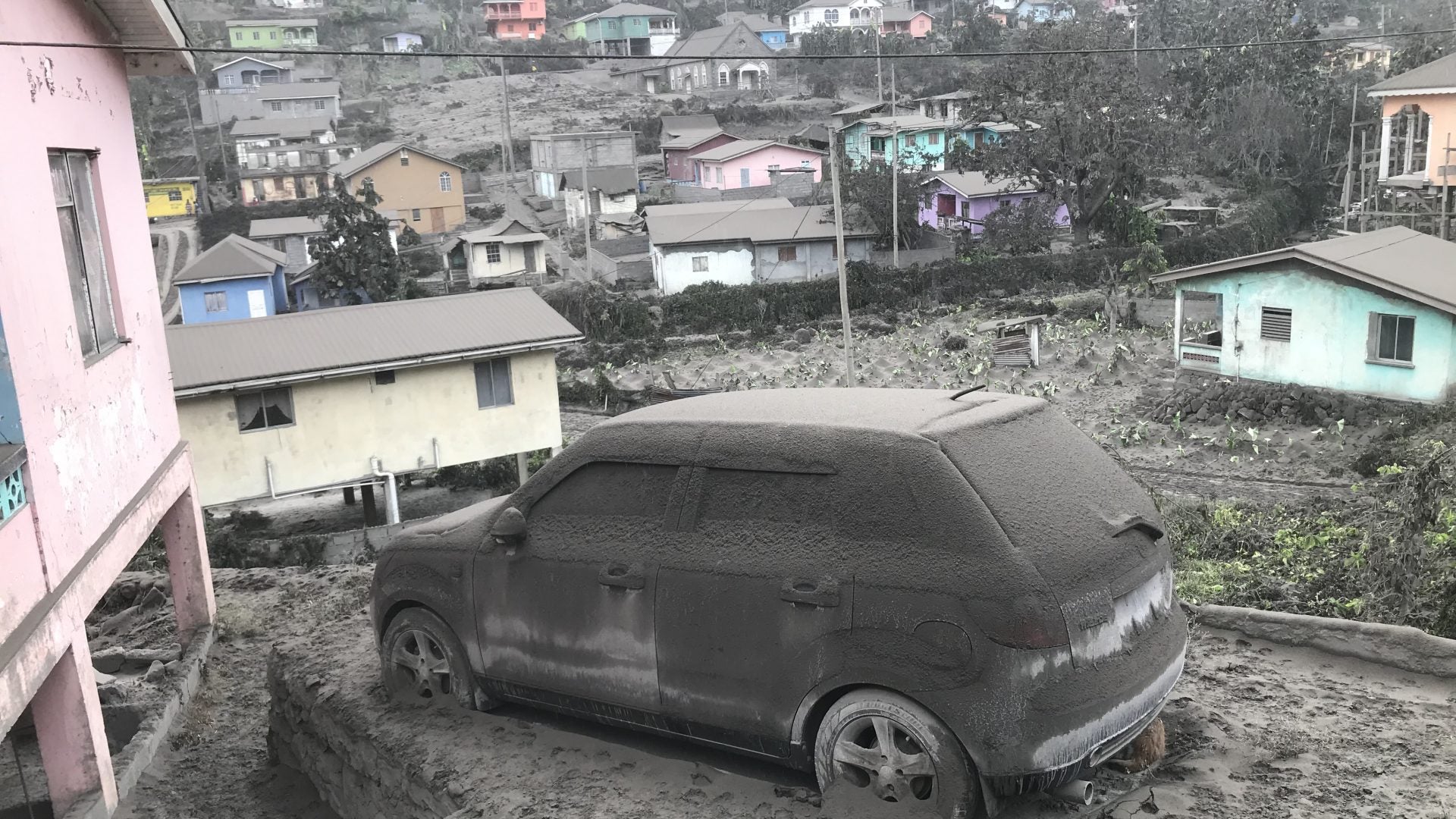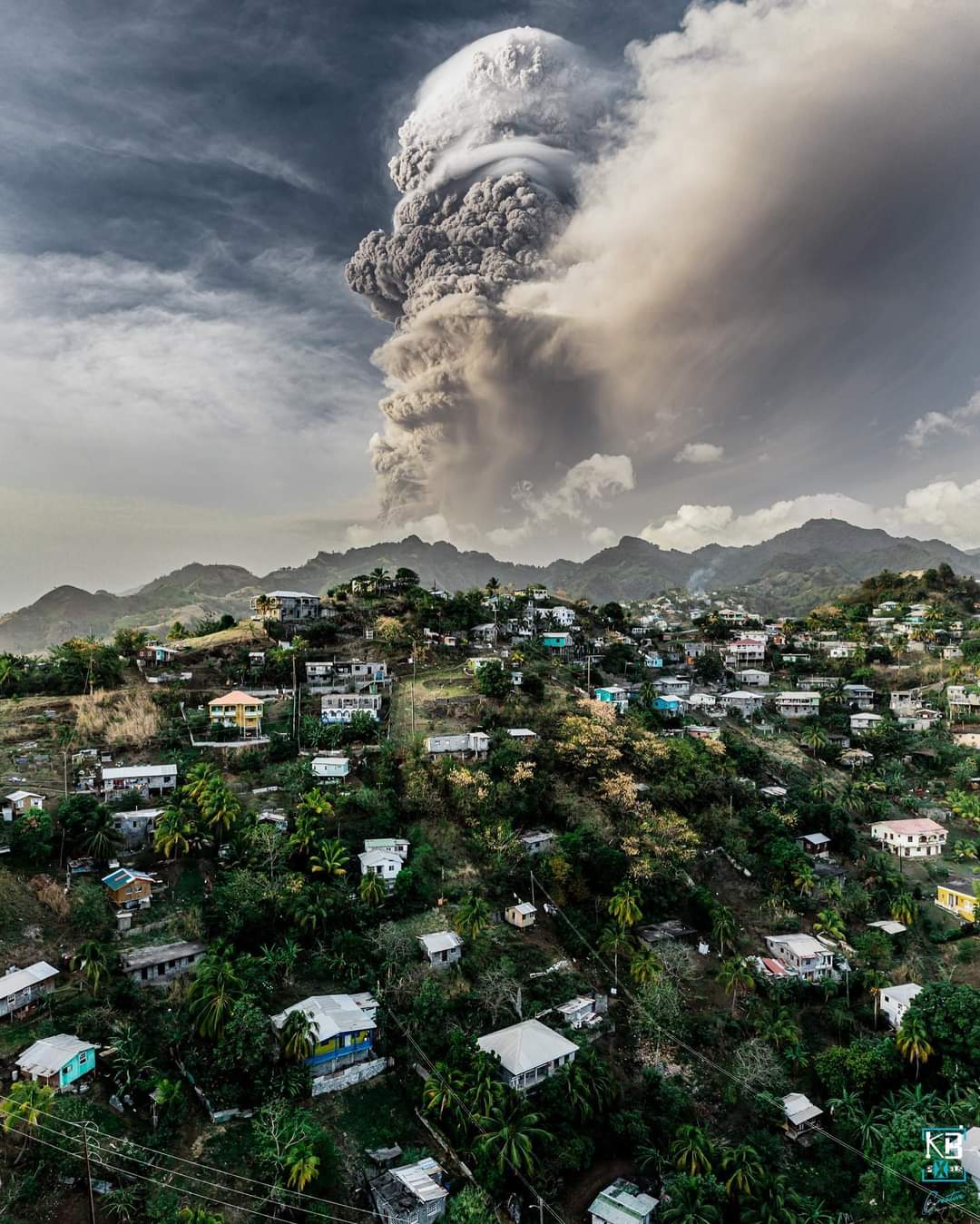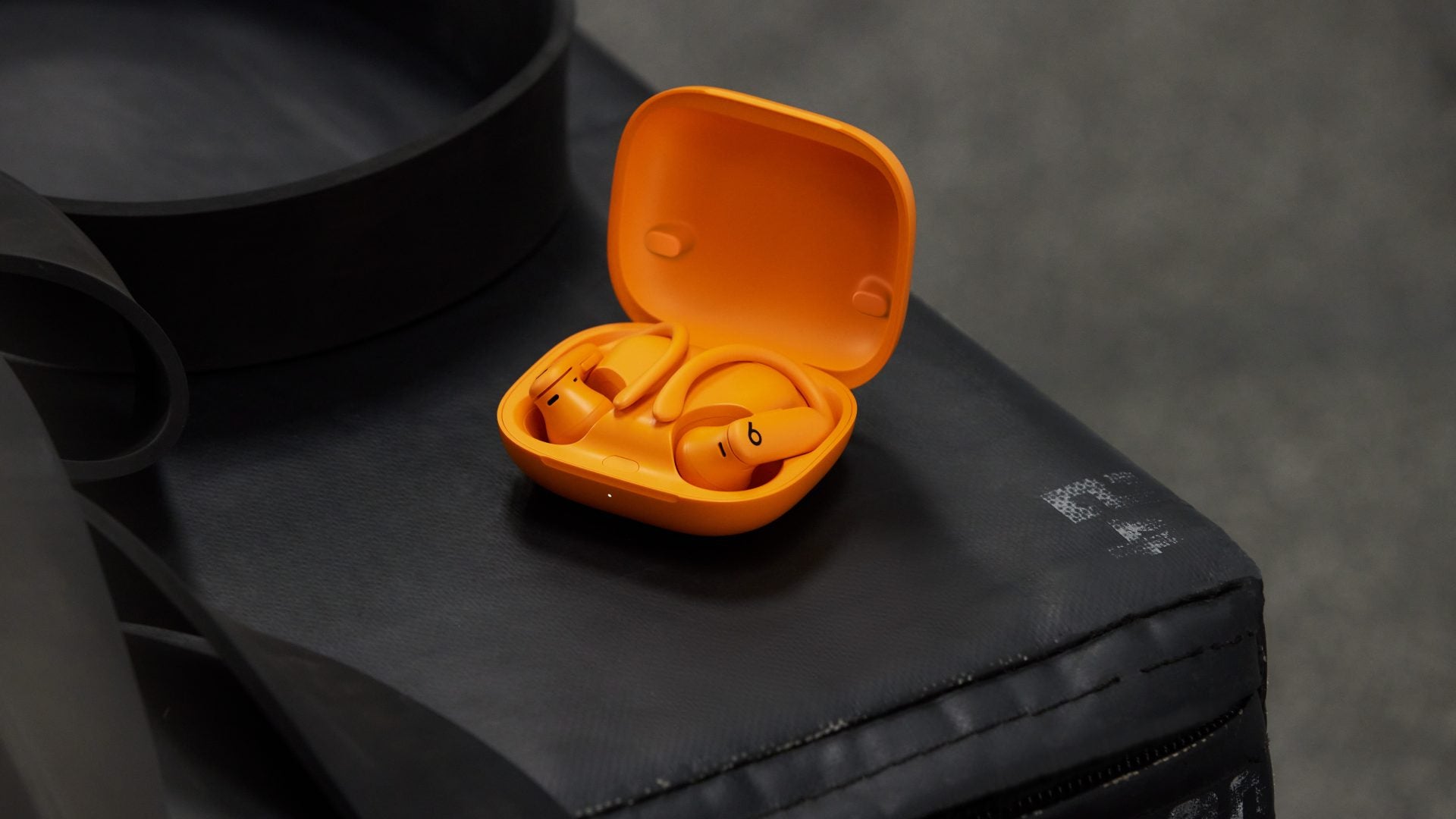
It’s been one month since the La Soufrière volcano in St.Vincent and the Grenadines began a series of explosive eruptions, displacing 20 percent of the population on this eastern Caribbean island. Thousands of people remain in great need of humanitarian assistance.
After being dormant for 42 years, La Soufrière began erupting on April 9. The massive explosions have blanketed parts of St.Vincent with heavy ash, damaged buildings, disrupted water supply, and devastated the agriculture industry.
Problems caused by the ongoing eruptions of this 4,000-foot volcano were further intensified by heavy rainfall at the end of April, which led to major flooding, landslides, and volcanic mudflows called lahars.
“I felt like I was in a battle zone against nature…It was very much unbelievable. The whole experience has been traumatic,” says Codrian Simmons, a resident of Chateaubelair—a community near the volcano which had to be evacuated.
Simmons is just one of an estimated 20,000 people now displaced from their homes on the northern side of St.Vincent. Joined by two friends, he’s made several trips back to communities in the danger zone to evacuate residents. Their efforts helped evacuate about 115 people to safety at the onset of the eruptions.
Since early April, there have been at least 30 identifiable eruptions. The volcano hazard alert level was just downgraded from red to orange on May 6.
Scientists at the University of The West Indies (UWI) Seismic Research Centre—which tracks earthquakes and volcanoes for the English-speaking Eastern Caribbean—say that the volcano is still in a state of unrest. Explosions with accompanying ashfall of similar or larger magnitude can take place with little or no warning.

In the weeks since the volcanic eruptions started, Simmons and two others have been delivering food, water, and clothing to people who are also displaced. “The mission is bigger than any one man at the moment,” he tells ESSENCE.
St.Vincent and the Grenadines, an island chain of about 110,000 people faces many long-term challenges as it grapples with the economic, social, and environmental toll of ongoing volcanic eruptions, the COVID-19 pandemic, and the start of the 2021 hurricane season in June. It’s why assistance is so critical and relief efforts will need to be ongoing.
“I feel like the biggest help is yet to come,” says Vincentian designer Karen De Freitas.
De Freitas is a part of the recently launched Just Us League SVG, a group of about 70 volunteers who’ve combined resources to coordinate the ongoing purchasing and delivery of needed items to displaced families. The group has also organized art classes and movie nights for people currently in shelters.
“Many people have lost their homes for sure or they probably can’t return to their areas, so we’re doing our best to give them some of those comforts of life,” she said.
On the international front, the United Nations has launched a $29 million dollar global funding appeal to aid people in St.Vincent as well as in Antigua and Barbuda, Barbados, Grenada and Saint Lucia, which have been hit with severe ashfall.
The Organization of Eastern Caribbean States commenced the Stronger Together Campaign— a relief effort seeking to raise $100 million dollars to address the needs of volcano victims and the disaster’s short term and long-term impact.
Across the United States, community organizations have mobilized initiatives to get needed supplies and funds to St.Vincent. In New York City—home to one of the largest Vincentian diasporas in the country—The Caribbean Diaspora Disaster Relief and Recovery Coalition has held an ongoing series of Caribbean Days of Giving (CDOG) to collect items across the five boroughs.
“Our humanitarian efforts could not be a one-off event,” CDOG Organizer Dr. Omyma David. “It’s gonna take a while for the rebuilding process and it’s going to take a lot of money and a lot of us doing the work to support our brothers and sisters in St.Vincent and the Grenadines to restore some sense of normalcy,” she said.
Apart from efforts of community groups, some Caribbean American leaders have been critical of the national response by the United States to this humanitarian crisis. New York Congresswoman Yvette D. Clarke has said that the initial $100,000 allocated by the U.S. Agency for International Development (USAID) to address this major crisis, falls “woefully short” of the USA’s humanitarian capacity.
“This funding is, simply put, a symbolic gesture and merely scratches the surface of the Vincentian people’s needs and does little to combat the catastrophic disaster that continues to unfold,” Rep.Clarke said in a statement.
On May 14, USAID announced an additional $3.8 million in humanitarian assistance for Vincentians affected by the eruption of the La Soufrière.
Congresswoman Clarke, who represents the predominantly Caribbean 9th Congressional District in Brooklyn and serves as Chair of the US Congressional Caribbean Caucus, has also urged the Biden Administration to grant Temporary Protected Status (TPS) to Vincentians impacted by the volcano. TPS allows foreign nationals to live and work in the United States temporarily because of armed conflict or natural disaster in their home country.
The calls for more international solidarity to aid the island nation are personal for Asshur Cunningham, a native of St.Vincent and the Grenadines who lived in a community near the volcano before migrating to New York.
“We have to be ready and willing to be in this for the long haul,” Cunningham tells ESSENCE.
The Vincentian American, who serves on Brooklyn’s Community Board 17 supported a resolution to grant TPS to Vincentians impacted by the volcano. It requests that Congresswoman Yvette Clarke, Congressman Hakeem Jeffries, Sen. Chuck Schumer and Sen. Kirsten Gillibrand implore the Biden administration to act and formally grant TPS to Vincentians who can’t return home.







Cunningham says he would like to see the international community step up and do more to aid the country in its time of need. He has also used his role as founder of the Young Black Travelers platform to raise awareness and funds for what will be a long road to recovery for the island.
“There’s a song in St.Vincent, where we say we’re out to build a new St. Vincent,” he said. “Literally, that’s what this is going to be. We are out to build a new St.Vincent and it will take all of us working together to do it.”






